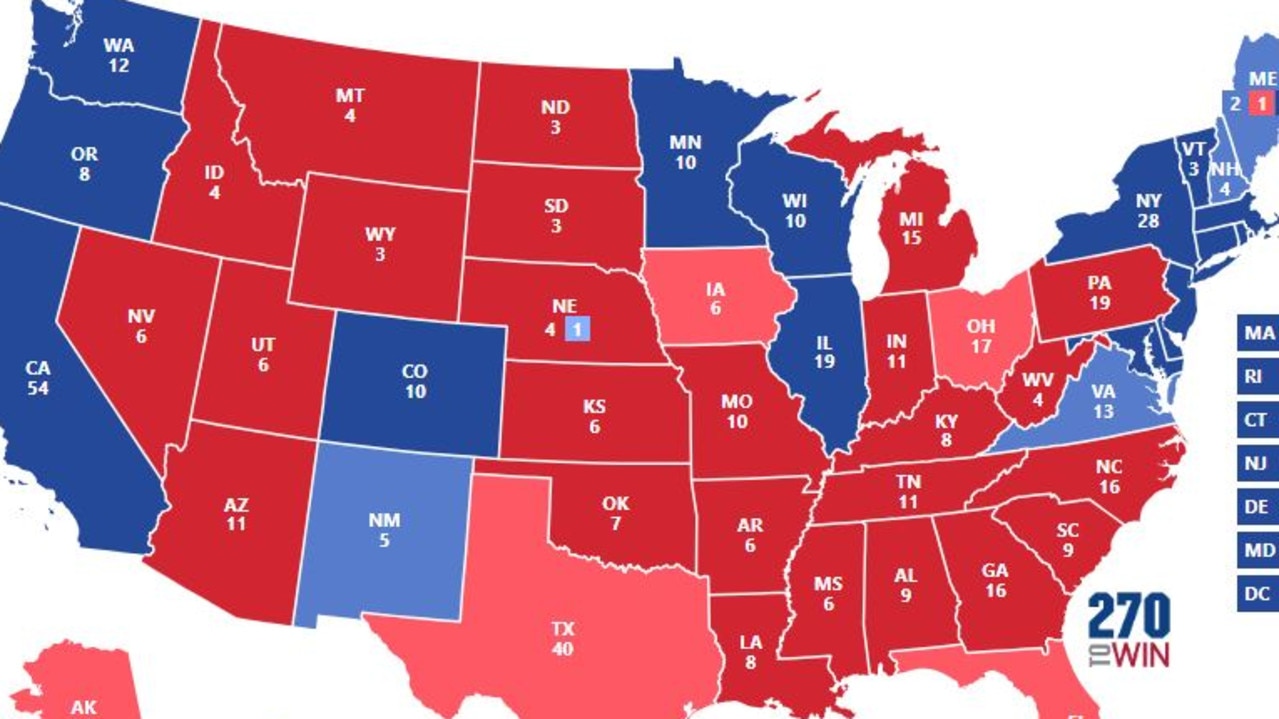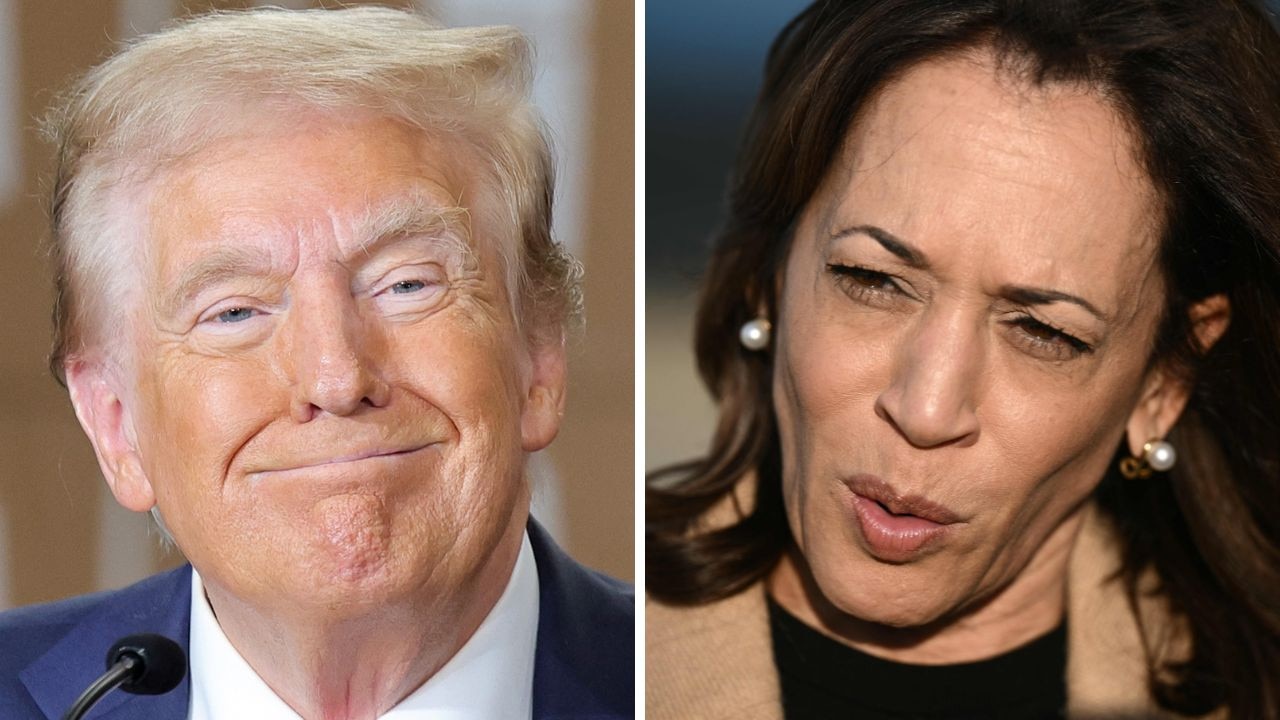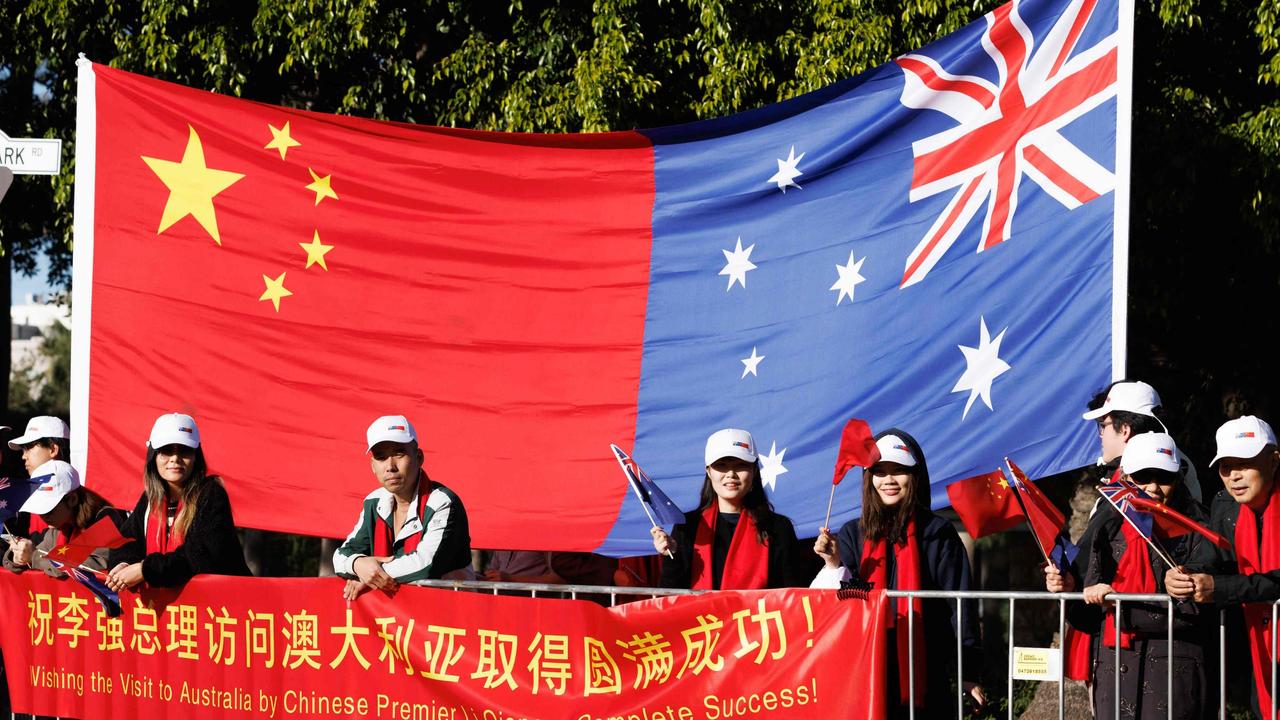PM’s defence in sports rorts scandal suffers heavy blow
Scott Morrison’s core defence against the sports rorts scandal suffered a heavy blow last night after a dramatic new revelation.
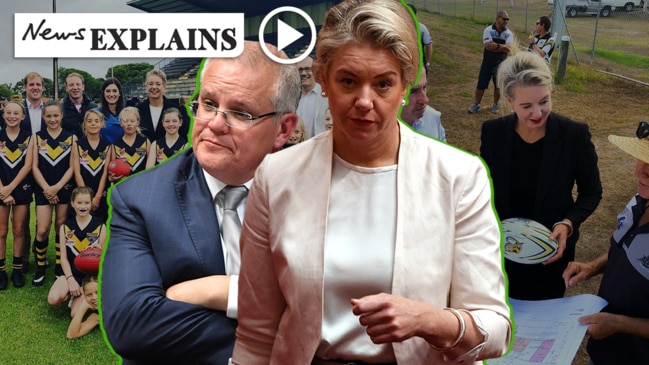
Scott Morrison’s core defence against the sports rorts scandal suffered a heavy blow last night, as officials from the National Audit Office revealed almost half the projects funded under the $100 million sport grants scheme were technically ineligible.
The government has been accused of misusing money from the taxpayer-funded program for its own political gain by favouring applicants in seats it wanted to win at last year’s election, instead of awarding grants based purely on merit.
RELATED: Duelling reports leave sports rorts scandal unresolved
RELATED: Jacqui Lambie torches government over ‘cover-up’
It has offered one clear, consistent defence - that all the successful applicants were “eligible” for funding.
We have covered that talking point pretty extensively before, but to jog your memory, here are a few quick examples of it in action.
“No rules were broken. Every single one of those 684 projects that were funded were eligible for funding under the guidelines,” said Bridget McKenzie, the minister responsible for the program, when the scandal broke.
“Every single one of the projects approved was eligible, every rule followed in relation to the program,” Mr Morrison said on January 20.
“No rules were broken. All the projects were eligible,” said Treasurer Josh Frydenberg the next day.
“All of these projects were eligible. All of them,” Attorney-General Christian Porter told 6PR radio.
“What the government was doing was supporting local community infrastructure projects, all of which were eligible under the program, all of which will make a difference in the community,” the Prime Minister said at the National Press Club.
You get the point. The government has repeatedly brushed aside criticism of its conduct with this line that every funded project was eligible.
RELATED: PM’s laughable excuse for sport rorts scandal
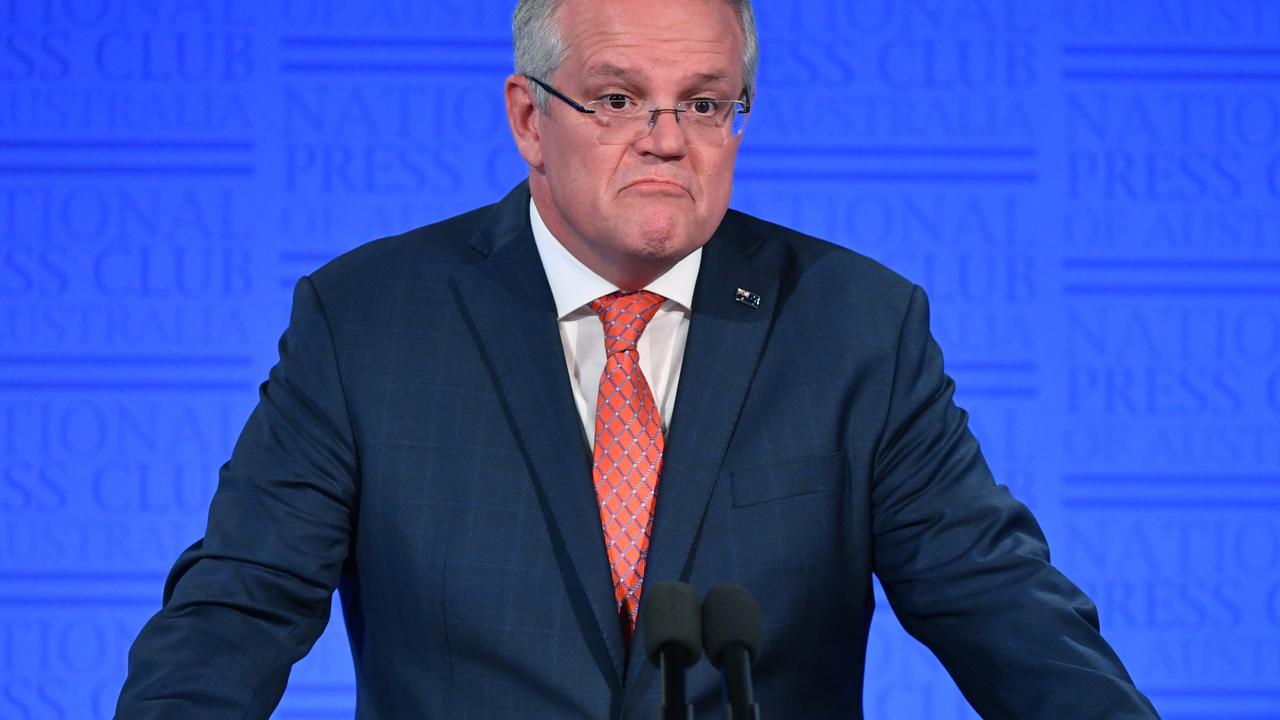
Last night, however, as the Senate’s inquiry into the scheme held its first hearing, officials from the National Audit Office told a different story.
Under questioning from Liberal Senator Eric Abetz, who was actually seeking to reinforce the government’s defence, Audit Office executive Brian Boyd directly contradicted it.
“You did find that no ineligible project or application was funded?” Mr Abetz asked.
“No Senator, that’s not what we found,” Mr Boyd replied.
He referred Mr Abetz to Chapter 3 of the Auditor-General’s report, which contains the much-cited line that “ineligible applications were identified and no applications assessed as ineligible were awarded grant funding”.
“So that’s the Sport Australia eligibility assessment process,” Mr Boyd clarified.
Some context is required here. An independent body, Sport Australia, originally assessed the grant applications, ranking them based on merit, and provided recommendations to the minister, Ms McKenzie.
According to the Auditor-General, no projects assessed as ineligible at that stage of the process ended up getting money.
But because the process dragged on so long, circumstances changed, and by the time funding agreements were signed a large number of the projects initially assessed as eligible had become ineligible under the program’s guidelines.
“What then happened subsequently was there’s applications - late applications were taken on board, which were ineligible under the guidelines. Amendments were made for existing applications which were ineligible under the guidelines, and they were funded,” Mr Boyd explained.
“Because things took longer - because you are now running two rounds rather than three, and funding agreements are in place - you had eight projects where, according to the details provided, the project had been completed before the funding grant was signed. They’re ineligible under the program.
“There were 270-something where the project had started before the funding agreement was signed, which is also ineligible under the program.
“So we get to around 43 per cent of those which were awarded funding, by the time the funding agreement was signed, were ineligible.
“The guidelines’ eligibility requirements don’t end just when you’ve lodged the application. That is common across many grants programs.”
In total, 272 projects became ineligible because they started work before the agreements were signed, eight had already been completed, five late applications were accepted and four applications were amended after Sport Australia assessed them.
So, the defence that no ineligible projects received funding? It’s just been blown apart.
Of course, it was always an absurd argument anyway. The problem with the program was never one of eligibility; it was that Ms McKenzie ignored the recommendations of Sport Australia, which were based on merit, and doled out the cash based on politics instead.
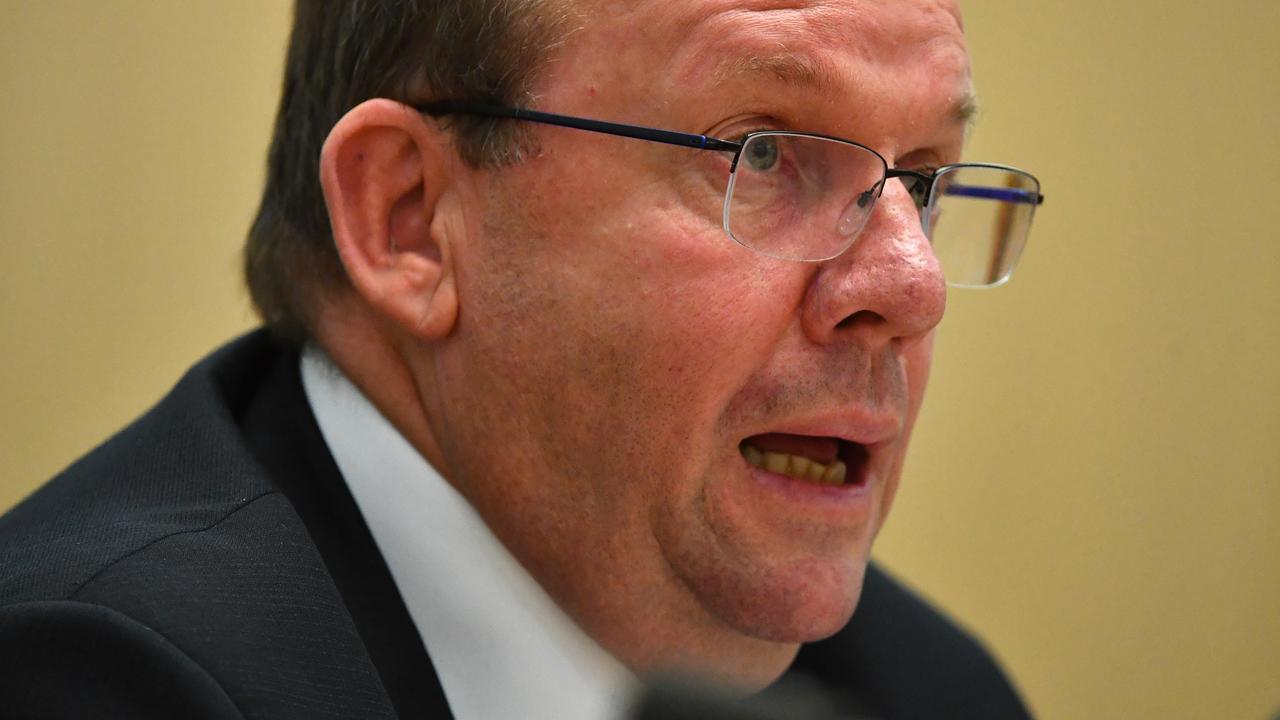
A few other pieces of testimony raised eyebrows.
The Audit Office officials said Ms McKenzie’s office had exchanged “comfortably dozens” of emails with Mr Morrison’s office during the grants process.
The Prime Minister has said his office’s only involvement was to pass on representations from various MPs.
“All we did was provide information based on the representations made to us. As every Prime Minister has always done,” he told the Press Club last month.
The officials indicated some representations were not merely passed on, but came directly from the Prime Minister’s office.
Having said that, Auditor-General Grant Hehir emphasised that Ms McKenzie was ultimately the one making the decisions.
“The evidence before us is that the minister was the decision-maker. If we had have identified someone else as the decision-maker, we would have gone down that path.”
And the official revealed there were at least 28 versions of the notorious colour-coded spreadsheet developed by Ms McKenzie’s office.
That spreadsheet sorted applicants based on the electorate they were based in, with the different colours corresponding to whichever party held the seat.
RELATED: Colour-coded spreadsheet exposes rort
Mr Morrison was seemingly blindsided by the testimony last night when he was asked about it - particularly the part about eligibility - at a press conference, where he was announcing an extension of the coronavirus travel ban.
“I haven’t seen that evidence, I haven’t seen that statement. I will review that,” Mr Morrison.
RELATED: Australia’s China travel ban extended
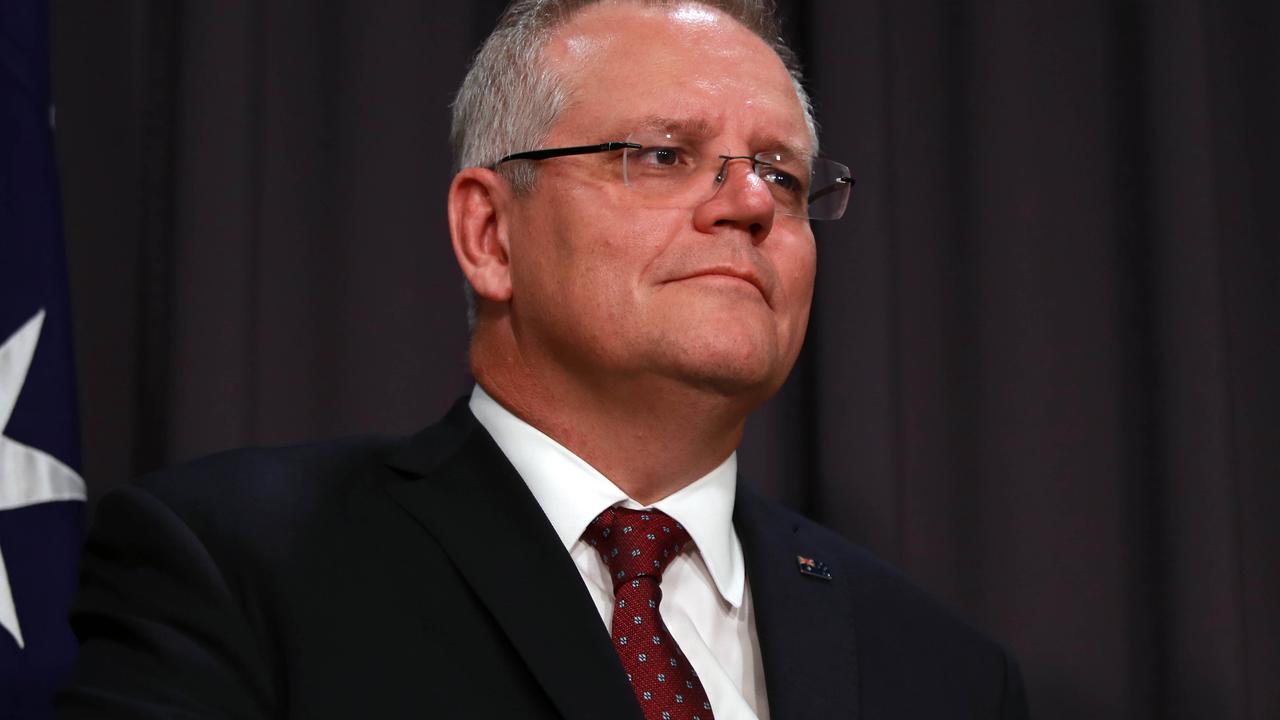
One defence still remains for the government - a second report into the grants program, written by Mr Morrison’s former chief of staff Phil Gaetjens, who now heads the Department of Prime Minister and Cabinet.
The Prime Minister has refused to release the Gaetjens report, but he has quoted from it, saying Mr Gaetjens found no evidence of the program being “unduly influenced” by political considerations.
Mr Hehir reached the exact opposite conclusion.
“The award of funding reflected the approach documented by the minister’s office of focusing on ‘marginal’ electorates held by the Coalition as well as those electorates held by other parties or independent members that were to be ‘targeted’ by the Coalition at the 2019 election,” his report says.
“Applications from projects located in those electorates were more successful in being awarded funding than if funding was allocated on the basis of merit assessed against the published program guidelines.”
The Audit Office officials told the Senate inquiry they had not read the Gaetjens report. They declined to speculate on its findings.
“That’s not what auditors do,” Mr Hehir said.


